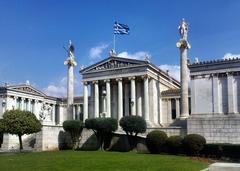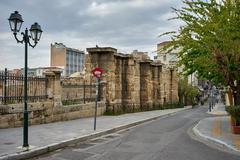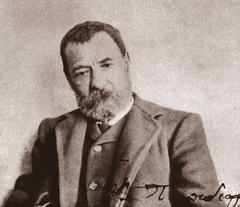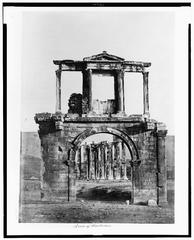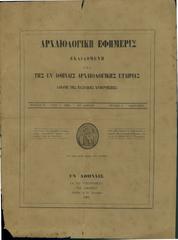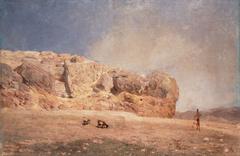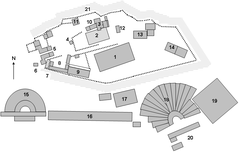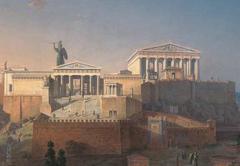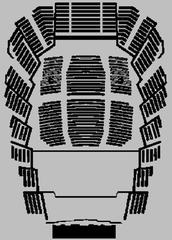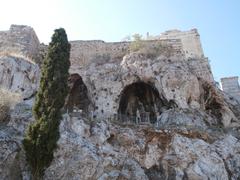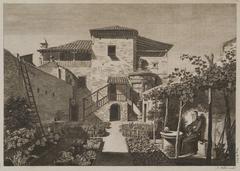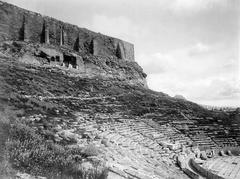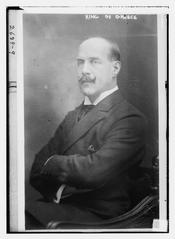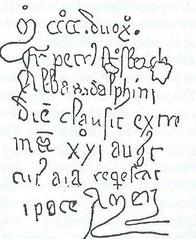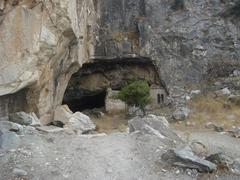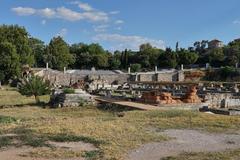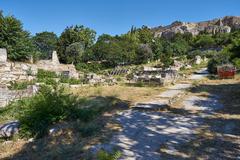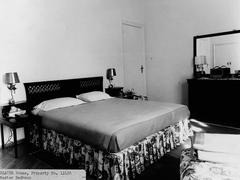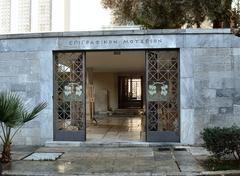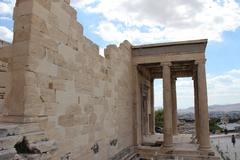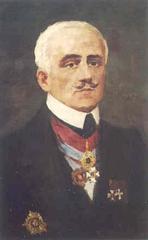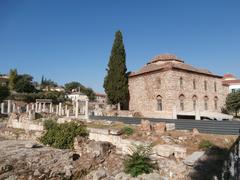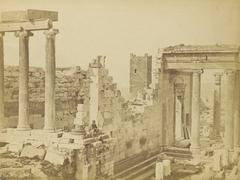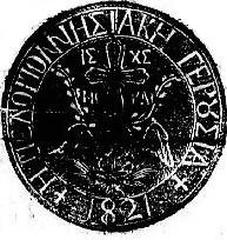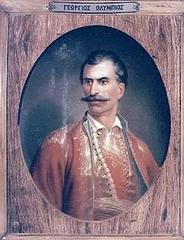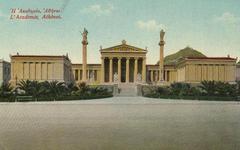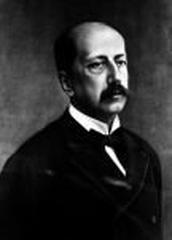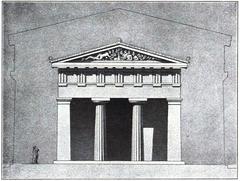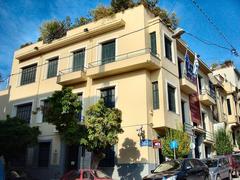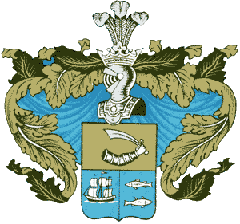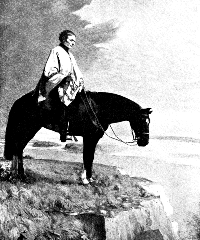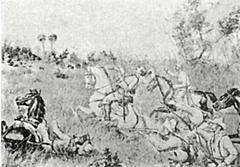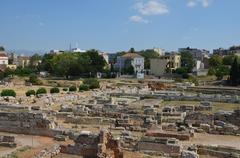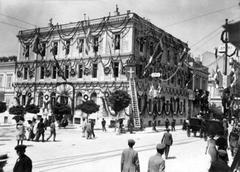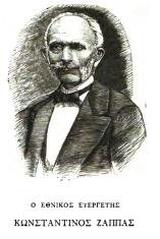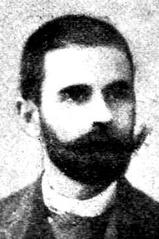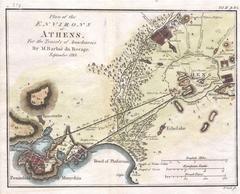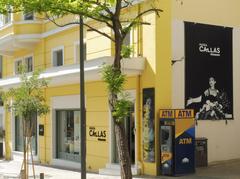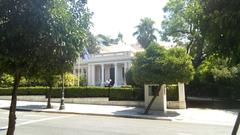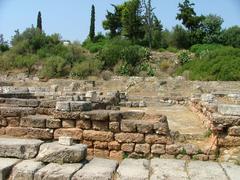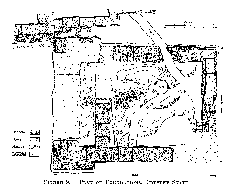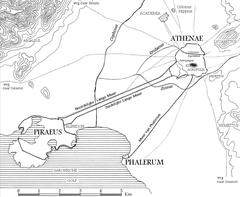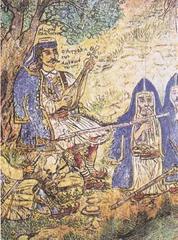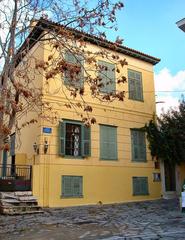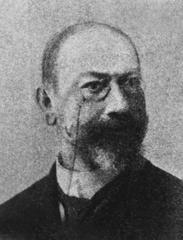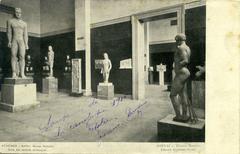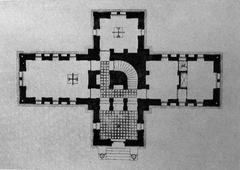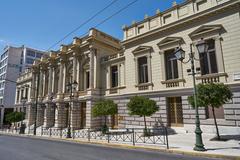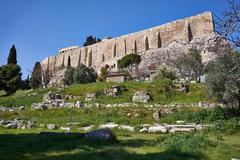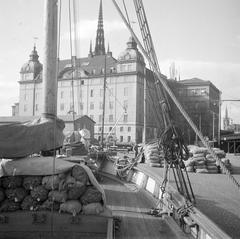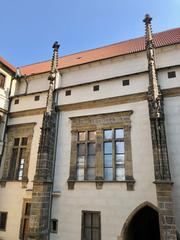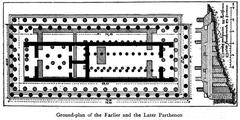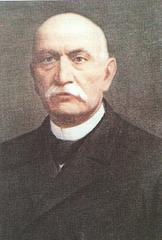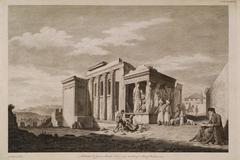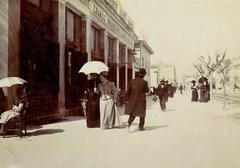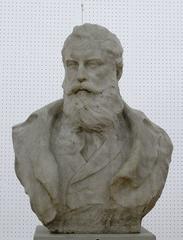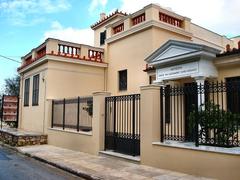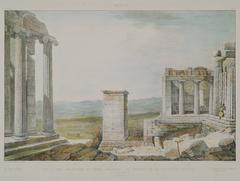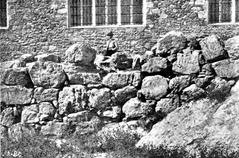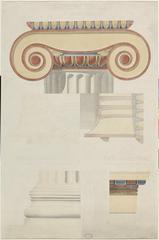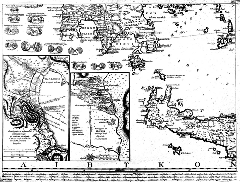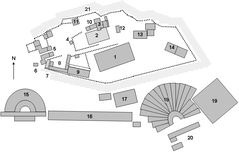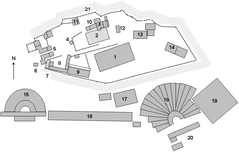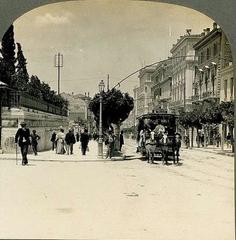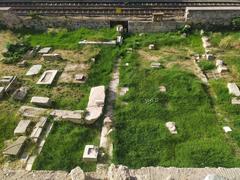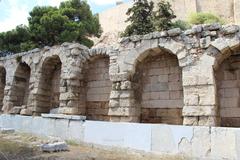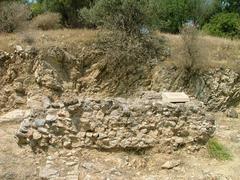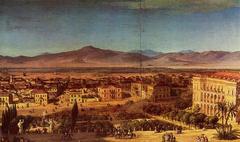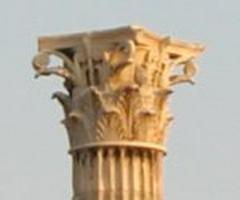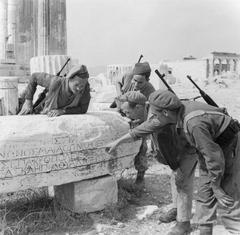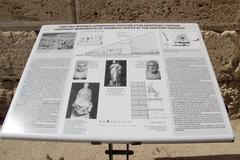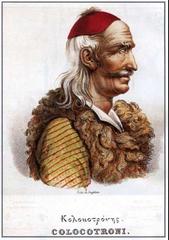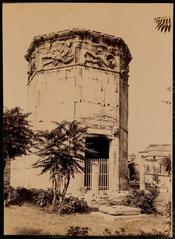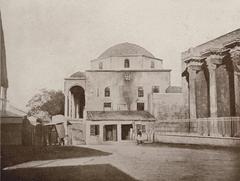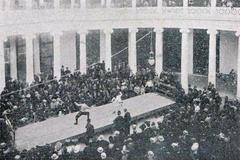Athens Polytechnic Uprising Site Visiting Guide – Athens, Greece
Date: 14/06/2025
Introduction: History and Significance
The Athens Polytechnic Uprising site, located in central Athens, Greece, stands as a profound symbol of resistance, democracy, and the enduring spirit of the Greek people. This iconic landmark commemorates the dramatic events of November 1973, when students and citizens united to oppose the oppressive military junta that ruled Greece from 1967 to 1974. The rallying cry “Bread, Education, Liberty!” (Ψωμί, Παιδεία, Ελευθερία) galvanized a nation yearning for freedom and civil rights.
Today, the National Technical University of Athens (NTUA), widely known as the Athens Polytechnic, serves as both a leading educational institution and a living historical site. Visitors to the Polytechnic can encounter powerful reminders of the past—such as the iconic twisted iron gate crushed by a tank, memorial plaques, evocative murals, and a central monument to the fallen. These features, alongside annual commemorations and the campus’s vibrant Exarchia district location, make the site essential for anyone interested in Athens’ modern heritage.
Explore authoritative coverage and background through Greek City Times, Greek Reporter, and Atlas Obscura.
Table of Contents
- Introduction: History and Significance
- Historical Background
- Visiting Information
- Getting There
- Nearby Attractions & Travel Tips
- Memorials & Key Features
- Annual Commemorations
- Visitor Experience & Cultural Etiquette
- Frequently Asked Questions (FAQ)
- Safety & Neighborhood Tips
- Summary & Final Tips
- References
Historical Background
The Athens Polytechnic Uprising was a defining event in modern Greek history, rooted in the broader context of the Greek military junta (1967–1974). The military regime, notorious for suspending civil liberties and persecuting dissenters, faced growing resistance from students and youth by 1973 (Greek City Times).
In November 1973, students at the NTUA occupied the campus, broadcasting calls for “Bread, Education, Liberty!” The sit-in swelled to thousands and ended in tragedy on November 17th, when a military tank crashed through the main gate, resulting in at least 24 official deaths and over 1,100 injuries (Wikipedia; Greek Reporter). The uprising is widely regarded as the catalyst that led to the collapse of the junta less than a year later.
Visiting Information
Visiting Hours
- Regular Hours: Generally open Monday to Friday, daylight hours (8:00 AM–6:00 PM).
- Commemorative Days (Nov 15–17): Extended hours, but expect closures for security, especially on November 17 (usually closes by 1:00 PM on this date) (Greek City Times).
Tickets & Entry
- Admission: Free. No tickets are required to enter the campus or view the memorials.
Accessibility
- Mobility Access: Ramps and paved paths allow access to the main entrance and key monuments. Some campus areas may have uneven surfaces; check for specific needs in advance.
- Restrooms: Limited on campus; public facilities available at the nearby National Archaeological Museum.
Getting There
- Address: 28 Oktovriou (Patission) Street, Exarchia, Athens
- Metro: Omonia or Panepistimiou stations (10-minute walk)
- Bus/Trolley: Multiple local lines run along Patission Street
- Walking: Just 2 minutes from the National Archaeological Museum
Interactive maps are available online and at most Athens tourist information centers.
Nearby Attractions & Travel Tips
- National Archaeological Museum: A major highlight, located just steps away.
- Syntagma Square, Benaki Museum, Acropolis Museum: Easily reached by public transport.
- Exarchia District: Known for alternative culture, lively cafés, bookstores, and tavernas.
Travel Tips:
- Combine the Polytechnic with a museum visit for a half-day cultural itinerary.
- Prefer daytime visits; the neighborhood is best explored during daylight.
- Stay aware of local news, especially around November 17th, due to potential protests and disruptions.
Memorials & Key Features
The Main Gate
The preserved bent and torn iron gate—destroyed by a tank on November 17, 1973—is the most iconic symbol of the uprising (Greek Reporter). Plaques, flowers, and wreaths honor those who lost their lives.
Central Monument
A monumental bronze head by Agamemnon Markis (1984), modeled after historian Nikos Svoronos, stands as a powerful memorial within the campus (The National Herald).
Murals and Artistic Tributes
Murals, graffiti, and slogans—most notably “Ψωμί, Παιδεία, Ελευθερία”—are found throughout the site, keeping the spirit of the uprising alive (Greek Herald).
EAT-ESA Monument (Eleftherias Park)
Nearby, the EAT-ESA monument at Eleftherias Park marks the site of a junta-era torture center, with a memorial and small museum providing context on repression (Atlas Obscura).
Annual Commemorations
Dates & Key Traditions
- November 17th: The main date of commemoration, with ceremonies, flower-laying, and the reading of victims’ names (GreekPod101).
- March to the U.S. Embassy: A major annual protest march symbolizing opposition to foreign involvement in the junta (Real Greek Experiences).
- Educational Programs: Greek schools and universities hold lessons, screenings, and discussions on the uprising’s values.
Security & Safety
- Heightened Security: Police presence, road closures, and metro station shutdowns are common during commemorations. Tourists should avoid the area on November 17th unless participating in the events (Keep Talking Greece).
Visitor Experience & Cultural Etiquette
- Respectful Behavior: Maintain silence near memorials, avoid disruptive actions, and refrain from photographing police or demonstrators during protests.
- Photography: Discreet photography is allowed, but always seek permission before photographing individuals, particularly during ceremonies.
- Dress Code: Dress modestly, especially during commemorative events.
Frequently Asked Questions (FAQ)
Q: What are the Athens Polytechnic Uprising visiting hours?
A: Open on weekdays during daylight (8:00 AM–6:00 PM); special hours and closures during November 15–17.
Q: Is there an admission fee?
A: No, entry is free.
Q: Is the site accessible for people with disabilities?
A: The main entrance and most memorials are accessible; some uneven terrain exists.
Q: Can I visit on November 17th?
A: It is not recommended for casual tourists due to demonstrations and security measures.
Q: Are guided tours available?
A: Official tours are rare, but many Athens walking tours include the site.
Safety & Neighborhood Tips
- Exarchia is vibrant but known for activism. Stay vigilant for pickpockets and avoid the area during demonstrations.
- Prefer visiting during the day; the neighborhood can be quieter and less safe after dark.
Emergency Contacts:
- Police: 100
- Tourist Police: 171 (English assistance)
- Nearest Hospital: Evangelismos
Summary & Final Tips
The Athens Polytechnic Uprising site is a vital testament to Greece’s struggle for democracy and human rights. Its preserved monuments—the main gate, central memorial, and murals—offer a compelling and solemn experience for visitors. Plan your visit during regular hours, combine it with nearby attractions, and engage respectfully with the site’s powerful history. Annual commemorations on November 17th provide a unique perspective on modern Greek civic life but require extra caution due to large crowds.
For more information and curated experiences, download the Audiala app. The story of the Athens Polytechnic Uprising continues to inspire generations, underscoring the universal values of justice and liberty.
References
- Athens Polytechnic Uprising: Visiting Hours, Tickets & Historical Significance of Athens’ Iconic Monument, Greek City Times
- Athens Polytechnic Uprising Memorials: Visiting Hours, Tickets & Historical Significance, Greek Reporter
- Annual Commemorations and Visiting Guide for the Athens Polytechnic Uprising: History, Traditions, and Visitor Information, Keep Talking Greece
- Exploring the Athens Polytechnic Uprising: Visiting Hours, Tickets, and Cultural Insights for a Meaningful Experience, GreekPod101
- Athens Polytechnic Uprising Monument, Atlas Obscura
- Citizens Gathered at the Athens Polytechnic on the 50th Anniversary Since the Uprising Against Military Junta, The National Herald
